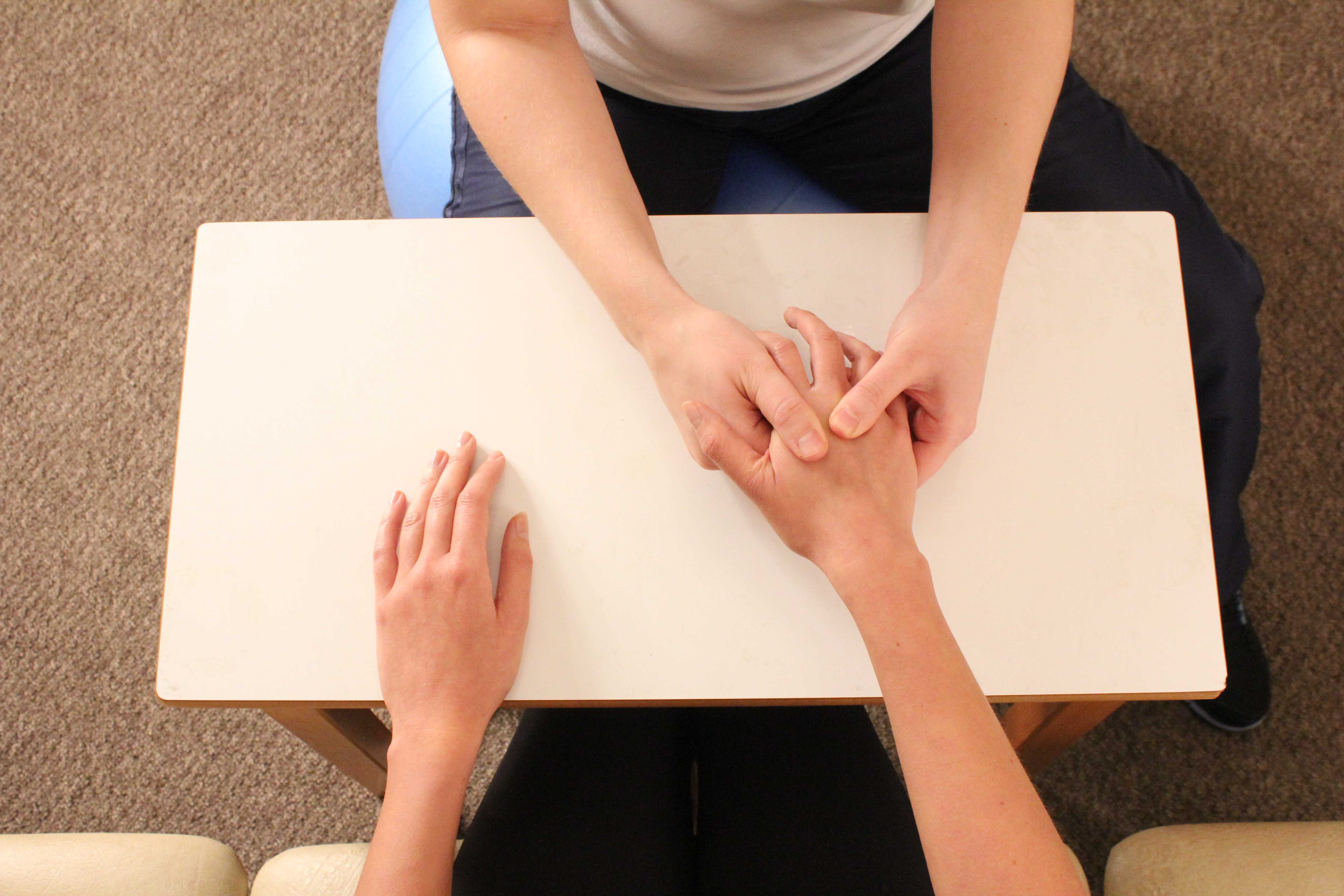What is the dislocation of a finger?
A dislocation of a finger is when the two bones which make up the knuckle joint displace or ‘pop out’ of their normal alignment. A physiotherapy programme is important following a dislocated finger.
 Above: Therapist soft tissue massage of the metacarpals and connective tissues in the hand
Above: Therapist soft tissue massage of the metacarpals and connective tissues in the handHow does the dislocation of a finger happen?
A knuckle joint is caused to dislocate when it is bent in the wrong direction with force. This can occur when a ball hits a finger or when a finger gets caught in a fellow competitor’s clothing, a net or the ground.
What are the symptoms of a dislocated finger?
Immediate and intense pain is felt in the knuckle when it is dislocated. An obvious bump or deformity at the knuckle can often be seen due to the displacement of the bones which join to make the joint. The knuckle may also become swollen. Other symptoms can include::
What should I do if I have dislocated finger?
If you have or suspect you have dislocated a finger, you should cease participating and go directly to your nearest accident and emergency department to have the joint examined. To reduce your pain and control any swelling, you should apply a bag of frozen peas or crushed ice wrapped in a moist towel or cloth around the injured knuckle for up to 20 minutes at a time.
At the accident and emergency department an X-ray will be taken of your hand to determine whether any of the bones are damaged. From this, they can provide you with an exact diagnosis and determine an appropriate treatment plan. If your knuckle is still ‘out of joint’ relocating or ‘reducing’ the bones back into their normal position is the initial treatment. This may sometimes require surgery.
Physiotherapy treatment following a dislocated finger.
Once your finger has been relocated physiotherapy treatment can start immediately. Treatment may involve wearing a splint, electrotherapy to decrease pain, swelling and promote healing. Your physiotherapist will also provide you with a graduated programme of stretching and strengthening exercises to improve joint movement and strength. When you do return to normal activity or participation in sports your physiotherapist will advise you on protective measures such as taping techniques, splints and supports to protect the knuckle joint.
Other treatments may include:
- Wax therapy
- Fracture Treatment
- Soft Tissue Treatment
- Taping
What shouldn’t I do if I have dislocated my finger?
If you have a dislocated finger, you shouldn’t try to relocate the bones or ‘reduce’ the dislocation. This can lead to further damage and delay recovery. In addition, you should avoid activities which can increase the blood flow to the injured area. These include hot showers, heat rubs, massage and the consumption of alcohol. These may increase bleeding and swelling around the dislocated joint, potentially prolonging your recovery.
Could there be any long-term effects from the dislocation of a finger?
Dislocated fingers generally heal without complication in a matter of months. However, to enable this to occur, surgery is often required to relocate the bones back to their normal position. Following surgery, recovery may be prolonged if you damaged structures surrounding the joint when you dislocated your finger. These include the ligaments supporting the knuckle joint, the bones making up the joint and the cartilage lining the surfaces of the joint. Similarly, recovery may be prolonged if the dislocated finger is not appropriately treated. This may result in a stiff, swollen and painful finger.
To arrange a physiotherapy assessment call Physio.co.uk on 0330 088 7800 or book online.

 0330 088 7800
0330 088 7800





































